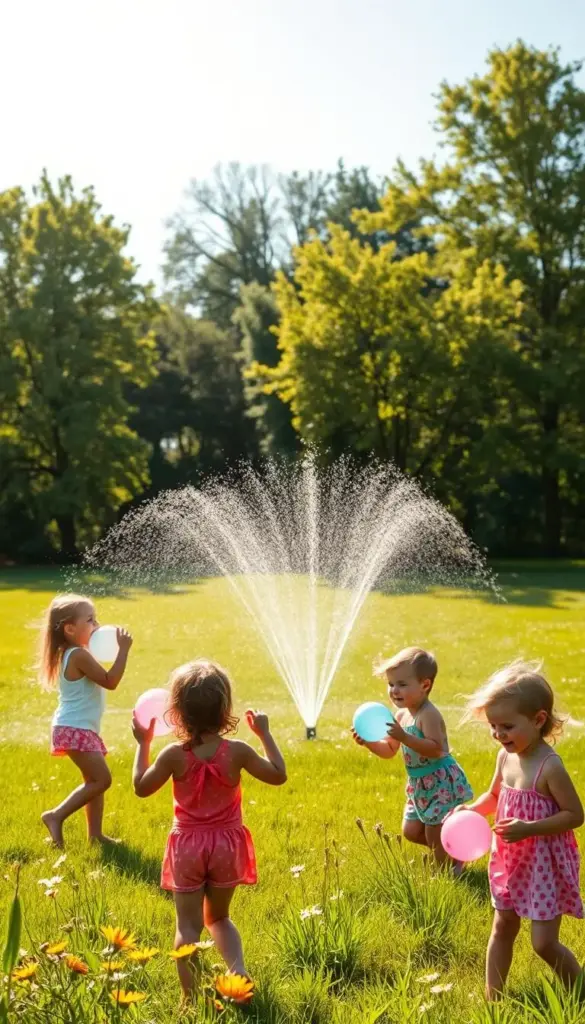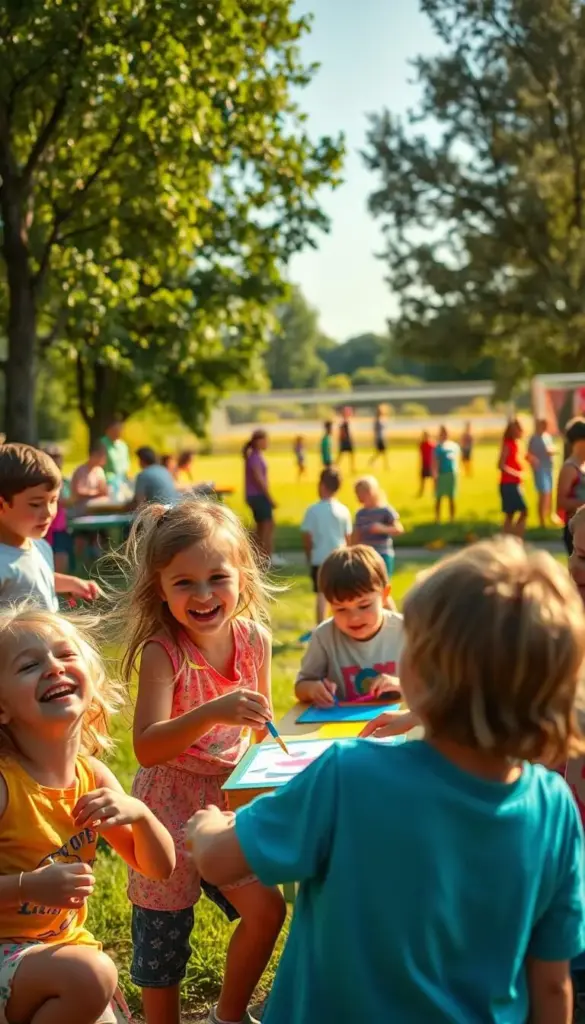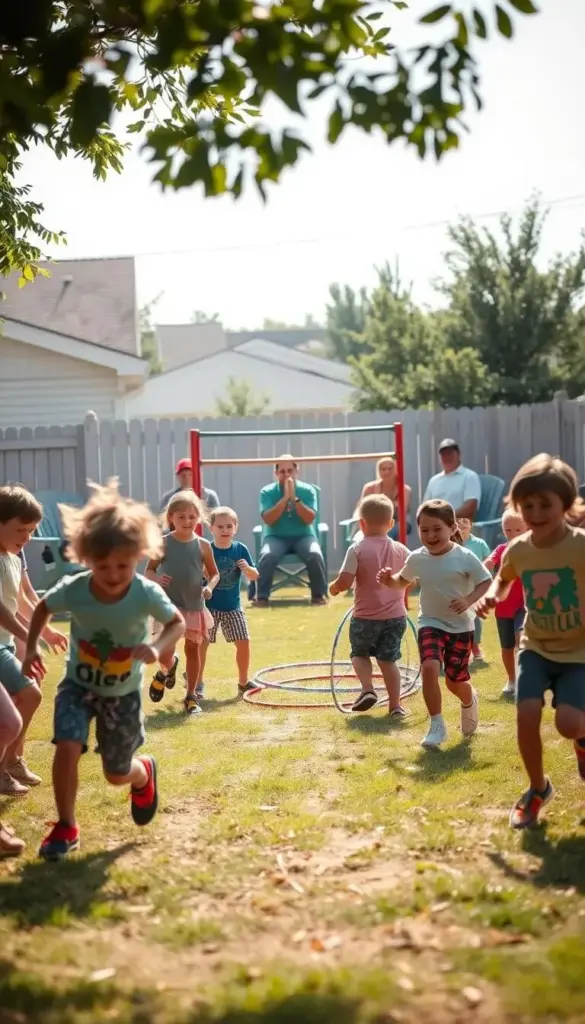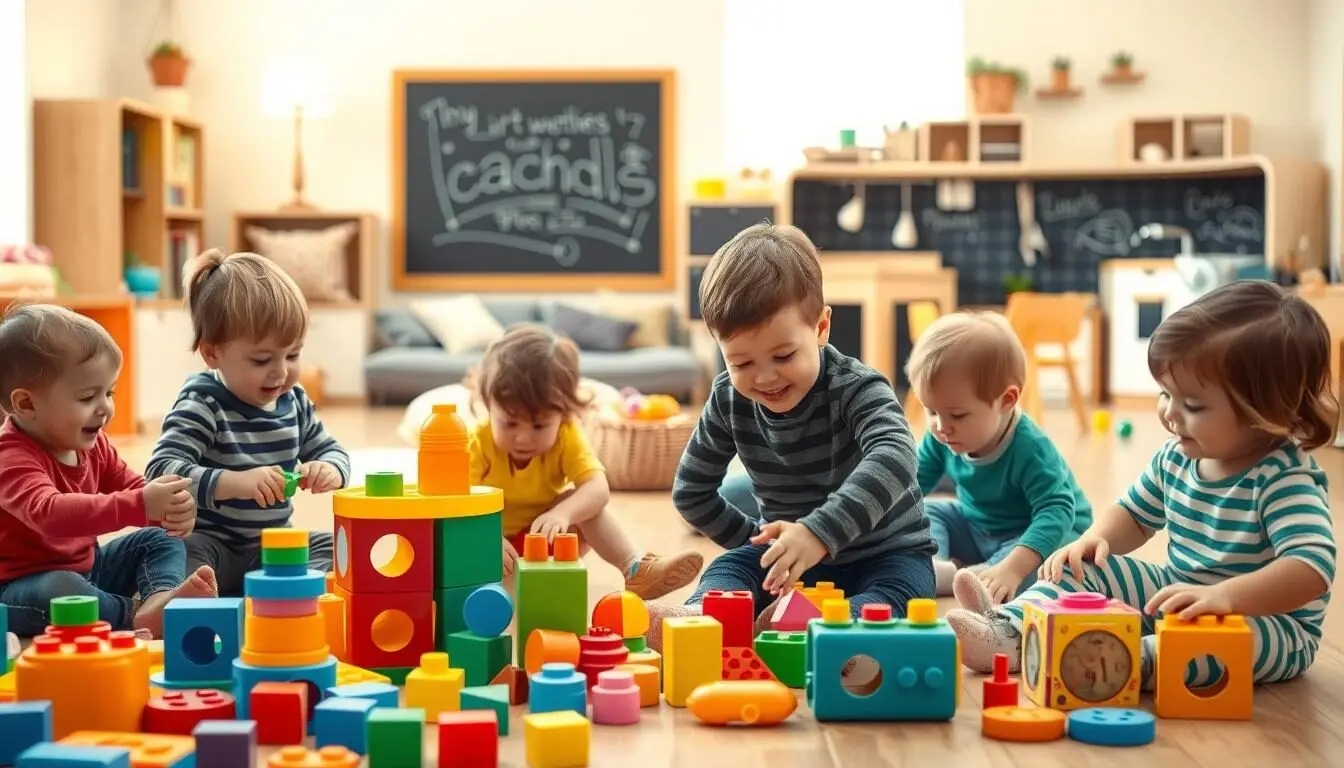Planning a fun summer experience for your kids can feel overwhelming. There are so many activities, camps, and programs out there. It’s hard to know where to begin.

Creating a structured summer schedule can help. It keeps your kids busy and ensures they enjoy their break. I’ll show you how to find the right activities and make a great summer plan.
Key Takeaways
- Understand the benefits of a structured summer plan.
- Assess your child’s interests and needs.
- Explore various activities and camps.
- Create a balanced summer schedule.
- Make the most of your child’s summer break.
Why a Structured Summer Schedule Benefits Your Child
A structured summer schedule offers many benefits for your child. It helps keep a routine and can help make new friends. A well-planned summer can greatly improve your child’s development and happiness.
Maintaining Routine and Reducing Summer Slide
One key advantage of a structured summer is keeping a routine. This is vital in preventing the summer slide. The summer slide is when kids lose some of what they learned in school.
By adding educational activities to their summer, your child can keep their knowledge sharp. This way, they’ll be ready to learn when school starts again.
Balancing Fun and Learning Opportunities
A good summer schedule should mix fun and learning. You can sign your child up for fun summer programs for children like day camps or sports. These activities keep kids engaged and teach them new things.
For example, a summer reading program can spark a love for books. A sports camp can boost their physical skills.
Supporting Social Development and New Friendships
Summer is perfect for kids to make friends and grow socially. Joining group activities or camps lets them meet others with similar interests. This is key for building confidence and learning to communicate.
As a parent, encourage your child to try new things and meet others. This helps them grow and develop.
Getting Started: Assessing Your Child’s Interests and Needs
Before planning a summer schedule, it’s key to know your child’s interests and needs. This helps you make a plan that fits them perfectly.
Age-Appropriate Activities to Consider
Choosing summer activities for your child depends on their age and skills. Young kids might enjoy simple crafts and outdoor games. Older kids can tackle more complex projects and sports.
| Age Group | Activity Types |
|---|---|
| Preschoolers (3-5 years) | Arts and crafts, storytelling, outdoor play |
| School-age children (6-12 years) | Sports, STEM activities, summer camps |
| Teenagers (13+ years) | Specialty camps, volunteer work, leadership programs |
Incorporating Your Child’s Passions
Adding your child’s passions to their summer plan can make it more fun and engaging. Whether they love art, music, or sports, there are many ways to support their interests.
Accommodating Special Needs and Considerations
It’s vital to think about any special needs or considerations your child has. This might mean picking inclusive activities or making arrangements for their participation.
By keeping these points in mind, you can craft a summer plan that’s both fun and enriching for your child.
Creating the Perfect Summer Schedule for Kids
A well-planned summer schedule can make a big difference. It keeps your kids engaged, active, and happy. It’s all about finding the right mix of fun, learning, and rest.
Weekly Planning Templates and Calendars
Weekly planning templates and calendars are great for organizing summer activities. You can find free templates online or make your own with Google Calendar or Microsoft Excel.
These tools help you see the week ahead. They ensure you make the most of summer. Include camps, outings, family time, and downtime for a balanced schedule.
Balancing Structured and Unstructured Time
Finding the right balance is key to a great summer schedule. It’s good to have plans, but also leave room for spontaneity and rest.
Too much structure can cause burnout. Too much free time can lead to boredom. Aim for a mix that suits your child and family.
Digital Tools for Schedule Management
In today’s world, digital tools can help manage your child’s schedule. Apps like Cozi or Google Calendar track activities, appointments, and share schedules with family.
These tools are a big help, like when coordinating with other parents. They keep everyone informed, reducing misunderstandings and missed events.
Summer Camps: Finding the Right Fit for Your Child
Choosing the right summer camp can change your child’s summer. There are many options, so think about what’s best for your child.
Day Camps vs. Overnight Camps
First, decide between a day camp or an overnight camp. Day camps are great for younger kids or those not ready for overnight stays. They offer a safe place during the day with activities, then kids go home.
Overnight camps offer a deeper experience. Kids learn to be independent, make friends, and try new things without daily travel. Think about your child’s readiness and your comfort with them away from home.
Specialty Camps: Sports, Arts, STEM, and More
Specialty camps focus on specific interests like sports, arts, or STEM. They’re perfect for kids who love a certain area and want to learn more. For example, a sports camp can improve skills, while an arts camp boosts creativity.

Questions to Ask Before Enrolling
Before signing up, ask important questions. Find out about the camp’s program, staff, safety, and how many kids each counselor will have. Knowing these details helps you choose wisely and ensures your child’s safety and happiness.
Preparing Your Child for Camp Success
To get your child ready for camp, talk about what they’ll do and where they’ll stay. Encourage them to be open, friendly, and to enjoy the camp.
- Discuss the camp’s rules and what’s expected.
- Help them pack with essentials like sunscreen and comfy clothes.
- Encourage making friends and trying new things.
By picking the right camp and preparing your child, you’ll give them a great summer. It will be fun, engaging, and help them grow.
Educational Activities to Prevent Summer Learning Loss
Summer can be a great time for kids to learn and grow. Adding educational activities to their summer can stop the summer slide. It keeps them interested and learning.
Reading Programs and Challenges
Reading programs and challenges are great for keeping up with learning. Encourage your child to read different types of books. This improves their reading and vocabulary skills.
You can join summer reading challenges at local libraries. Or, make your own reading list with rewards for reaching goals.
Math and Science Activities
Math and science activities are fun and educational. Simple experiments, like making a volcano, teach science. Math becomes fun when you use it in real life, like measuring for a recipe.
Educational Field Trips and Virtual Tours
Field trips and virtual tours offer hands-on learning. Visiting museums or science centers is both fun and educational. Virtual tours let you explore places worldwide from home.
Summer Tutoring and Enrichment Classes
Summer tutoring or enrichment classes can be helpful. They provide one-on-one learning and fill knowledge gaps. Look for classes that match your child’s interests and needs.
By adding these activities to your child’s summer, you prevent learning loss. They’ll be ready and confident when school starts again.
Outdoor Adventures and Nature Exploration
Summer is the best time to show my kids the beauty of nature. Outdoor adventures keep them active, engaged, and learning all summer long.
Getting kids to love nature starts with hiking and nature walks. These activities are fun and teach them about plants and animals.
Hiking and Nature Walks
Choose a trail that fits your kids’ age and skill level for hiking. Make it fun by creating a scavenger hunt or collecting leaves and rocks.
Local parks and nature reserves are great places to hike. Don’t forget to bring water and snacks to keep everyone energized.
Water Activities and Beach Days
Summer is perfect for water fun. Whether it’s the beach, a pool, or kayaking, it’s a great way to stay cool and have fun.
| Activity | Age Range | Location |
|---|---|---|
| Swimming | 3-12 | Beach or Pool |
| Kayaking | 6-16 | Lake or River |
| Surfing | 8-18 | Beach |
Gardening and Outdoor Projects
Gardening teaches kids about responsibility and caring for the environment. Start small with a plot or pots and let them help with planting and care.
Building a birdhouse, creating a rock garden, or making a DIY wind chime are fun projects. They teach kids about the outdoors.
National Parks and Wildlife Experiences
Visiting national parks or wildlife reserves is great for learning about nature and conservation. Many parks have guided tours and educational programs for kids.
Adding outdoor adventures and nature exploration to your summer plans creates lasting memories. It helps your kids develop a lifelong love for nature.
Arts, Crafts, and Creative Expression
Summer is a time when kids can explore arts, crafts, and creativity like never before. It’s a chance to encourage their imagination and creativity through various activities.
DIY Projects for Different Age Groups
DIY projects are great for boosting creativity in kids. Younger kids might enjoy making collages or playdough creations. Older kids can try woodworking or more complex crafts with adult help.
Music and Performance Activities
Summer is perfect for exploring music and performance. Kids can learn to play an instrument, join a theater production, or take dance classes. These activities help them express their creativity and build confidence.
Local Art Classes and Workshops
Local art classes or workshops are great for kids. They offer structured creative outlets. Communities often have classes in painting, pottery, and more. These classes are fun and help kids develop their artistic skills.
Photography and Digital Media Projects
In today’s world, photography and digital media are great for kids. They can learn about composition, lighting, and storytelling. Many smartphones have great cameras, making it easy to start.
Adding these activities to your children summer events calendar makes for a fun and creative summer. A kids summer calendar helps plan the season well.
Sports and Physical Activities to Keep Kids Active
A good summer schedule for kids should mix sports and activities. This mix boosts their health and mind. Playing different sports helps kids learn teamwork, discipline, and how to communicate better.
Team Sports Opportunities
Team sports are great for keeping kids active and teaching them important lessons. They learn about teamwork, strategy, and how to compete fairly. Kids love playing soccer, basketball, and baseball.
- Soccer: Develops cardiovascular endurance, agility, and teamwork.
- Basketball: Enhances speed, agility, and hand-eye coordination.
- Baseball: Improves hand-eye coordination, throwing, and catching skills.
Individual Sports and Activities
For kids who like solo activities or need a break from team sports, there are many options. Swimming, tennis, and cycling are great choices.
| Sport/Activity | Benefits |
|---|---|
| Swimming | Improves cardiovascular health, builds endurance, and enhances flexibility. |
| Tennis | Develops hand-eye coordination, agility, and strategic thinking. |
| Cycling | Enhances cardiovascular fitness, builds leg strength, and promotes balance. |
Creating Backyard Olympics and Challenges
Turning your backyard into an Olympic arena is fun and creative. You can set up stations with challenges like a mini obstacle course, water balloon toss, or ring toss.

Swimming is not just exercise; it’s a vital skill. Swimming lessons help kids feel confident in the water and learn safety.
Water safety education is key to preventing accidents and ensuring a safe summer.
Rainy Day Plans: Indoor Activities for Unexpected Weather
When the summer sun hides behind gray clouds, it’s time to find indoor fun. As a parent, having a rainy day plan is key. It keeps your kids happy and busy.
With a bit of creativity, a rainy day can be full of fun and learning. Here are some ideas to get you started.
Museum Visits and Indoor Attractions
Exploring local museums and indoor spots is a great rainy day activity. These places have interactive exhibits that are fun and teach kids something new.
- Check out local children’s museums or science centers for hands-on activities.
- Visit indoor play centers or trampoline parks for some active fun.
- Explore aquariums or indoor zoos for an exciting experience.
Home-Based Activities and Games
Home is where the heart is, and it’s also where the fun is on a rainy day. Here are a few ideas to keep your kids entertained at home.
- Board games and puzzles are great for developing problem-solving skills.
- Indoor arts and crafts projects can foster creativity.
- Cooking or baking together can be a fun and tasty activity.
Virtual Camps and Online Programs
In today’s digital age, there are many virtual camps and online programs. They’re perfect for rainy days and keep kids learning and engaged.
- Look for online camps that offer activities like coding, art, or science experiments.
- Consider virtual tours or educational websites that provide interactive learning experiences.
- Some organizations offer live online classes or workshops for kids.
By planning a mix of these activities, you can make sure your kids have a great summer. Even on rainy days.
Balancing Family Time with Independent Activities
Summer is a great time to mix family fun with personal interests. It’s important for parents to find a balance that meets everyone’s needs.
Planning is key to achieving this balance. Family outings and vacations create memories and bring us closer together.
Planning Family Outings and Vacations
When planning family activities, pick things everyone can enjoy. This could be:
- Visiting local attractions or theme parks
- Going on a road trip to see new places
- Joining summer camps for kids with lots of activities
Having a children summer events calendar helps organize these activities. It keeps everyone informed.
Encouraging Independence Through Solo Activities
Family time is important, but so is giving kids independence. Solo activities boost confidence and self-reliance.
Some solo activity ideas are:
- Reading books or joining a summer reading challenge
- Exploring hobbies or crafts
- Learning a new skill or sport
Creating Family Traditions and Summer Rituals
Family traditions and summer rituals add fun and excitement. They could be as simple as a weekly game night or as big as an annual vacation.
Managing Screen Time During Summer Break
Today, it’s hard to limit screen time. Setting rules and finding a balance is key.
Here are some tips for screen time management:
- Set daily limits on screen use
- Encourage outdoor play and sports
- Try screen-free activities like board games or arts and crafts
By using these strategies, parents can ensure a balanced and enjoyable summer for their kids.
Conclusion: Making This Summer Memorable and Meaningful
When planning our kids’ summer, it’s key to mix fun, learning, and downtime. A summer schedule planner for kids can make the season both fun and enriching. By adding different activities to their calendar, we meet their varied interests and needs.
There are many activities to choose from, like summer camps, outdoor fun, arts, and sports. A well-planned schedule helps prevent learning loss, builds friendships, and creates lasting memories. Start planning your child’s summer now to make it special.
By carefully planning a summer schedule, you give your child a memorable and meaningful experience.






